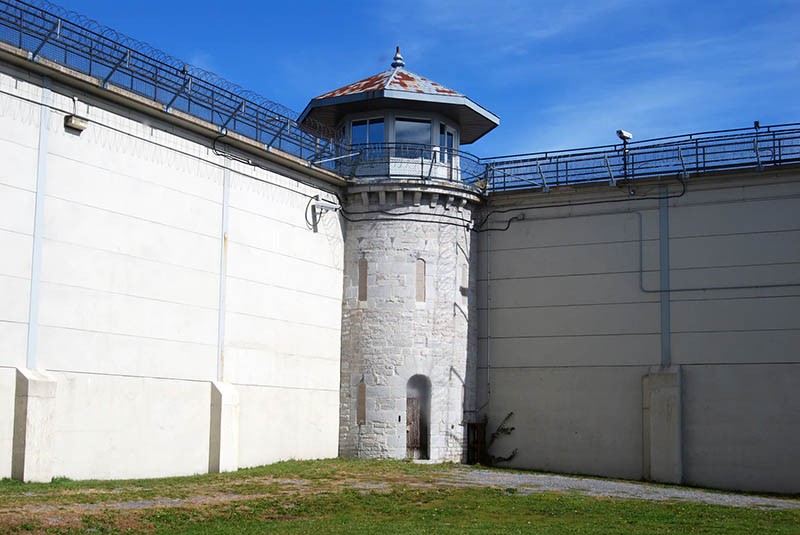“Seriously?”
That was my response when I was asked to help record a live album inside a prison. It was 1998 and I was only nine months out of recording school.
The person asking for assistance was my friend Larry Howard, who’d been working inside of penitentiaries for years with Prison Fellowship Ministries. He explained the deal. We would break down our entire recording studio and all the gear we had, load it into a moving van, and drive it to Broad River Correctional in South Carolina.
From there, we’d take over a large concrete room and bring in a dozen or so well-known Christian artists. The inmates would get a great show and we’d produce a live album to give away to supporters of the ministry. Made sense. Actually sounded like fun.
Upon arriving, we met up with the crew from Capital AV, located in the Washington, D.C. area, who provided the house and monitor systems for the concert. Nobody was excited about the acoustics or highly supervised working conditions, but we pulled it off and maintained our cheerful dispositions without episode. Three days later, we loaded the studio back up and went home to mix the project.
After a year or so of doing other things in audio, Larry reconnected me with Capital AV. Prison Fellowship had formally activated a new program to bring entertainers, ministers and former inmates into prisons across the country. They talked me into becoming a road dog and living out of a suitcase about two weeks of every month for the next four years.
During that time, I set up sound systems for about 350 events in 18 different states. Almost all of the events were held inside prison walls. Everywhere from Angola to Rikers Island. From small rural work release camps to federal prisons and death row. Some places I’d heard of and hundreds I hadn’t.
The first few events were nerve wracking until, like most things, it became a bit more routine. Imagine packing a rig for a small state fair into a van or truck. Enough gear for an audience of a thousand or so, along with up to a dozen performers.
Now, imagine hauling that gear into a major airport and moving it all though security. Ha. I wished it was that easy. There was a whole lot more to it.
First. Every single cable, adapter, loudspeaker, stand, microphone, CD, battery and marker had to be inventoried and accounted for. The list had to be checked and verified on the way in and on the way out. You don’t get to leave if anything is missing.
Second. The facilities want to review your inventory list a month before arrival. There was a situation where I was sent to a prison that had received another tech’s pack list. Not good. Spent a lot of time sorting that one out before they let me go.
Third. Most events required me to actually drive inside the prison grounds. This meant going through the “sally port” and those big gates. It meant a full inspection of me and the vehicle once inside, before the second gate opened. That process alone could take up to an hour.
Fourth. Once the gear was approved, it had to be moved to the performance area. The distance was typically a casual 15- to 20-minute walk. No problem empty-handed, but add in pushing road cases, racks and loudspeaker stacks. And 10 or more trips back and forth to the truck.
Some places allowed inmates to assist us, others didn’t. One place actually made me load in alone and push almost a half mile around the recreation field because they didn’t feel like unlocking one door.
I understood. We were a headache and a security risk. We were interrupting the routines that they depended on for security and order. Our presence threw a massive monkey wrench into their entire system. I was always very thankful when they were cooperative.
On one particular event, inside a level five prison, I met “Captain Caveman,” an officer every bit of six foot four and 300 pounds, topped by a thick beard. “I don’t care what this paperwork says or who signed it,” he said with a growl, standing up to his full height. “I run this place and if you people are coming in here, you’re going to do exactly what I say or I’ll shut it down immediately.”
It was at this moment, I realized that months of planning and the efforts of almost a hundred people hung on my next words. Summoning my most eloquent and diplomatic arsenal of responses, pulled from my years of experience in production work and said the following…
“Sir, I’m as flexible as Gumby. If you want me to wear a clown nose, walk backwards and honk while I walk, that’s fine with me. We’ll do this show however you tell us to do it.”
He adjusted his belt, leaned towards me, glared for a few seconds, and then said with a snicker, “Alright. Come on in. Let’s get you some help with your stuff.” That gig ran smooth as silk.
Overall, these events were some of the most stressful, frustrating, and challenging shows I’ve ever worked. The constant pressure of being accountable for every minute and every piece of gear could be brutal. The venues where the shows were staged were almost uniformly awful from an audio and acoustics perspective.
It might be surprising, then, when I say that I’d do it all over again. It was great to help in providing positive encouragement to the inmates and officers, and the crews and ministry were wonderful. The bonus is that the training and experiences were invaluable to my development as a sound tech. I am forever thankful for that opportunity.















